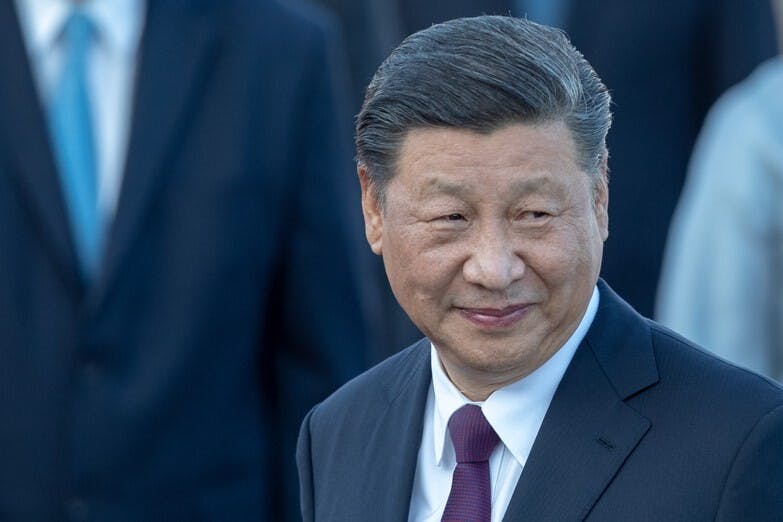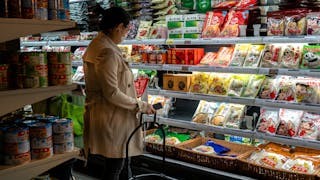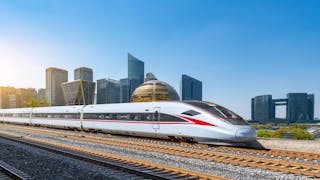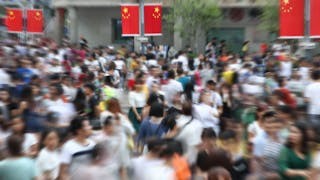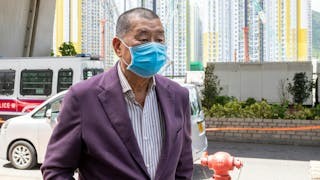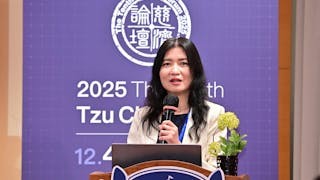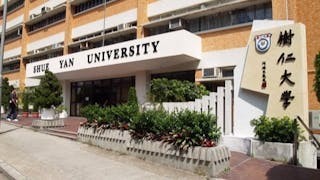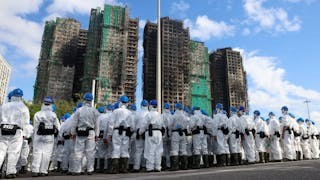如果為人民提供充足的糧食供應能夠保障國家安全,那麼中國最近就在確保糧食安全方面作出了巨大努力。
7月23日,新華社報道了國家主席習近平在保障糧食安全方面的重要講話。首先,他說中國必須抓好糧食生產,保障供應,穩定農業,確保糧食和副食品的生產安全。其次,習主席強調糧食安全是「國家安全的重要基礎」,要「加快轉變農業發展方式」,「讓農民用最好的技術種出最好的糧食」。第三,中國東北地區在維護糧食安全、國防、生態、能源和工業安全方面均發揮着戰略作用。因此,確保糧食安全是支撐國家安全的基礎。第四,習近平主席補充說,可以通過更好的水利系統和不斷改進的科學技術來支持糧食生產,這意味着中國需要更有效地防控洪澇。第五,他強調,糧食安全至關重要,因為它影響着中國的國家發展和人民的福祉。因此「要把保障粮食安全放在突出位置,毫不放鬆抓好粮食生產,加快轉變農業發展方式,在探索現代農業發展道路上創造更多經驗。」
中國是否已經面臨「糧食危機」?
習近平主席的指示迅速獲得政府各級農業官員的響應和行動。7月31日,農業農村部部長韓長賦主持召開部常務會議,研究部署下半年農業農村重點工作。會議強調,要深刻認識做好今年「三農」──農業、農村和農民──工作的極端重要性,要確保秋糧產量、生豬產能,實現全年「三農」工作的目標任務。
8月初有報道指美國農業部公布,中國擴大採購美國玉米至190萬噸,儘管有些記者猜測中國是否已經面臨「糧食危機」,但他們可能忽略了中國官方策略性地從美國進口更多玉米的行動,是因為預期兩國之間將會發生更為嚴重的貿易和科技戰。
另有報道指,一些中國農民在穀倉裏儲起超過兩成到三成糧食,這種現象表明,儘管內地並未出現糧食危機,但糧食供應的風險正在增加。但是,考慮到大多數中國人有「積穀防饑」的習慣,包括持續肆虐的新冠病毒和長江流域不少地區的洪水,儲存比過去多的精食實屬正常。事實上,許多中國農民和商人並不肯定新冠疫情下半年會否持續。
保障糧食安全無疑已成為中國努力實現國家安全的頭等大事。習近平主席在吉林的重要講話,以及隨之而來農業官員的後續行動,顯然是為了10月即將出台的中國第14個五年規劃奠定基礎。在中國許多地方遭受洪水肆虐的情況下,在2020年的困難日子裏,中國政府在保障全國食品供應穩定和充足方面的決心和行動力,仍然相對較強。
Ensuring Food Security in China
If national security embraces the adequate supply of food for the population, China has recently been making tremendous efforts to ensure food security.
On July 23, the Xinhua news agency reported the major remarks of President Xi in ensuring food security. First, he said that China must control its own food supply, stabilize agriculture and ensure the safety of grain and non-staple foods production. Second, President Xi emphasized that food security “is an important foundation of national security” and that “we need to innovate in food production, optimize production technology, implement all supportive policies, protect farmers’ enthusiasm for their work, and improve income from food production.” Third, the northeastern regions of China play a strategic role in safeguarding not only food security but also the security of national defense, ecology, energy and industry. Hence, ensuring food security buttresses the foundation of all other realms of national security. Fourth, President Xi added that grain production can be supported by a better water conservancy system and the ongoing improvement in science and technology, implying the need for China to control flooding more effectively and efficiently. Fifth, he stressed that food security is of paramount importance, for it shapes China’s national development and people’s well-being. As such, it is “imperative to study and improve food security policies, take production capacity-building as a fundamental task, and tap the potential of gram production from farmland and technology.”
President Xi’s comments triggered the immediate responses and actions from the agricultural officials at various levels of the government. On July 31, Han Changfu, the Minister of Agriculture and the former Governor of Jilin province, held a meeting with other agricultural officials and related members of the Chinese Communist Party to study President Xi’s remarks. Han told Party cadres that the three rural issues – agriculture, villages and farmers – would have to work together amid the flood control so that an autumn harvest would be achieved. Han appealed to his colleagues to conduct preventive work against the outbreak of swine fever among pigs and to ensure the stable supply of pork.
On August 7, Han held a meeting with agricultural officials in ten provinces along the Yangtze River through a video conference, emphasizing the need to arrest, ban and help those fishermen who illegally caught fish in the Yangtze River. Many fishermen appeared to face hardship after the outbreak of Covid-19 and during the flooding of Yangtze River, taking great risks to fish illegally. Han revealed that 110,000 fishing boats and 230,00 fishermen were involved in illegal fishing, but all the provincial governments concerned must provide subsidies and assistance packages to these fishermen, encouraging them to set up cooperatives and to adopt a new way of growing fish through aquaculture.
Han wrote an important commentary in the People’s Daily on August 7, referring again to President Xi Jinping’s remarks in his visit to Jilin on July 23 that the Party center attached great importance to food security. During his third presidential visit to Jilin – the first in July 2015 and the second in September 2018 – Xi inspected a demonstration zone for green food production in Lishu county and learnt about the measures taken to protect black soil, the improvement of chernozem soil quality, and the growth of corn. The Lishu practice of utilizing maize straw to farmland for protective purposes could increase the soil’s organic matter and prevent soil erosion from wind and water. President Xi praised this model and advocated that it should be promoted.
According to Han, all Party cadres in the agricultural departments at various levels of the government must study the “spirit” of President Xi’s remarks and implement the measures laid down by the Party center and the State Department, especially the objectives of ensuring the achievement of “xiaokang” (affluent) society and “agricultural and food harvest,” “maintaining and increasing the protective capability of food supply,” and “grasping the power of initiating food security into our own hands.” The key phrases used by Han showed that China is keen to achieve self-sufficiency in its food supply, although he also referred to President Xi’s comment that “imports have to be made at an appropriate level.”
Han added that President Xi emphasized the importance of “our hands grasping the rice bowls of the Chinese people and our bowls should be filled with Chinese food” so that “the nation’s food safety strategy can stand firm internally, ensure productive capability, import suitably, and utilize technology as support.” Clearly, President Xi’s remarks in Jilin provided a new impetus in the mobilization of agricultural departments and officials at all levels to achieve the ultimate objective of ensuring food safety in China.
Han revealed that China’s food production reached 132.7 million catties with adequate supply of cereal grains, wheats, and corns. With the onset of Covid-19, China can still manage to secure 28.5 million catties of food during the summer harvest of 2020. These agricultural yields have become a “stabilizer” acting like “a stone being deposited in a storage.”
Nevertheless, in early August, there were reports saying that, according to the US Department of Agriculture, China stepped up its purchases of corn by reaching a deal for 1.9 million tons. Although some reporters speculated whether China has already faced a “food crisis,” they have perhaps neglected a calculated move by Chinese officials to import more corns from the United States in anticipation of a more serious trade and technological war between the two countries.
Otherreports have revealed that some Chinese farmers have hoarded grains more than 20 to 30 percent in reserves in the warehouses, a phenomenon showing that while food crisis is not looming in the mainland, the risks of food supply are growing. However, given the proclivity and tradition of most Chinese people to store more food in anticipation of and in time of crises, including the ongoing Covid-19 and flooding in many areas along the Yangtze River, such storage of more grains than the past is arguably normal. In fact, many Chinese farmers and traders are uncertain about whether Covid-19 would continue in the latter half of 2020.
Han in his commentary admitted that flooding and locusts undermined China’s agricultural yields. He appealed to the need for all agricultural officials to achieve President Xi’s stated target, namely securing good results in the autumn harvest so that the total of catties of food would reach 130 billion catties. It remains uncertain whether this target would be maintained, but the determination of top Chinese agricultural officials is obvious.
Han also acknowledged that migratory locusts undermined the Chinese cornfields and farmland. While Spodoptera frugiperda constitutes a menace to corn, rice planthoppers and rice leaf rollers have undermined rice field. As such, strengthening the barriers to prevent and control the attacks from these locusts is and will be necessary.
Moreover, China’s corn price has reportedly reached its apex in the recent five years, making many farmers to shift to wheat as an option to feed animals. This adaptability of Chinese farmers shows that they are working in partnership with the Chinese state, trying to ensure the stability of animal feed.
Overall, ensuring food security has undoubtedly become a top priority and a cornerstone of China’s efforts at achieving various dimensions of national security. President Xi’s major remarks in Jilin and the resultant follow-up actions from the agricultural officials are clearly laying the groundwork for the forthcoming fourteenth five-year plan of China in October. Amid flooding in many parts of China, the Chinese state remains relatively strong in both its determination and actions to ascertain the stability and adequacy of food supply in the entire country during the difficult year of 2020.
原刊於澳門新聞通訊社(MNA)網站,本社獲作者授權轉載。



